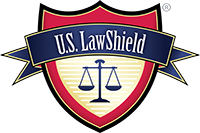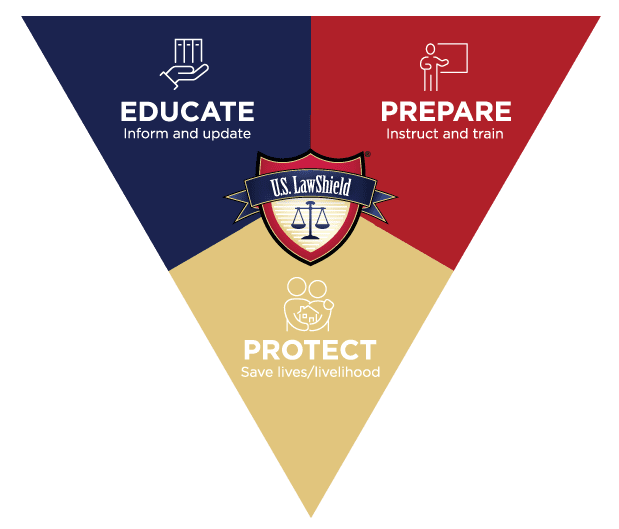Self-Defense Shooting

uslawshield.com
The Aftermath:
What to expect after a self-defense shooting
Being forced to defend yourself may seem unlikely, but let’s face it—these situations can happen. If you were to find yourself in this scenario, your immediate thought following a self-defense incident with your firearm might be, “What do I do now?” That’s where U.S. LawShield® comes in!

“911, what’s your emergency?”
When there’s no longer an immediate threat to your life and you’re about to call the police, it’s crucial to remember that all 911 calls are recorded. Stick to these following points when they answer:
- Give your name and location.
- Request emergency services needed (EMS and an ambulance).
- Say, “I was the victim of a crime.”
- Hang up.
Keep an attorney on speed dial
After you call the police, it’s time to speak with an attorney. As a U.S. LawShield member, you can breathe easier knowing you have immediate access to an Independent Program Attorney (IPA)—day or night—through our emergency hotline. The attorney will ask questions about the crucial details of the incident, so it’s critical to:
- Stay out of earshot of others when speaking to the attorney.
- Immediately provide emergency information (such as your location, emergency contact, or a call-back number).
- Trust the attorney’s advice and guidance.
And remember: the details you share with the attorney about the self-defense shooting will remain private between the both of you.


Remain calm when law enforcement arrives
There’s no definite answer on what happens when the police arrive since every self-defense incident is different. If you called an IPA beforehand, you should be better prepared to handle law enforcement (the attorney might even meet you at the scene). If you’re still waiting to hear from the IPA, don’t panic—stay calm and remember your legal rights. You have the right to speak to an attorney before answering the police’s questions and you also have the right to remain silent.
Be honest about your firearm
You might ask yourself, “What do I do with my firearm after the incident?” Follow the advice of the attorney, and if the police ask if you have your firearm, don’t lie. Hiding your firearm might cause law enforcement to be suspicious.

U.S. LawShield and our Independent Program Attorneys (IPAs) helping Educate. Prepare. Protect.™ since 2009

Almost every day, we hold in-person seminars and workshops led by industry professionals in different areas of self-defense.
Find a class
U.S. LawShield® is a Legal Defense for Self Defense® Program, not a law firm. Membership in the U.S. LawShield Legal Defense for Self Defense Program is not a guarantee of any particular outcome. All legal services are provided by independent third-party program attorneys who are part of the Program. Visit uslawshield.com for terms, conditions, restrictions, and insurance licensing information. In California: LawShield Member Insurance Services, license number 6001031






